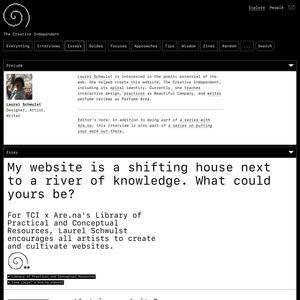
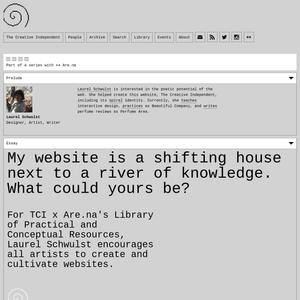
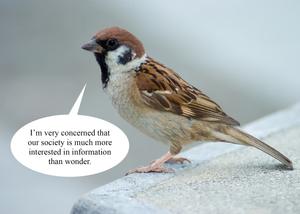
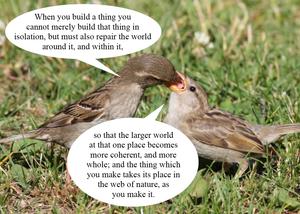
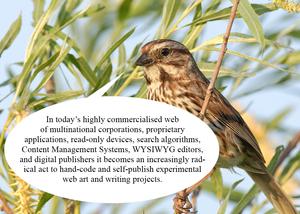
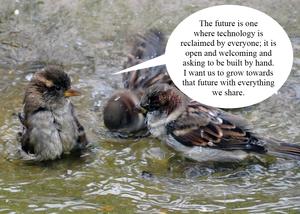
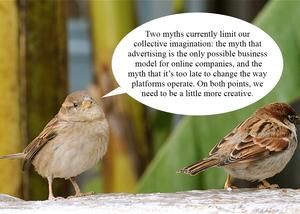
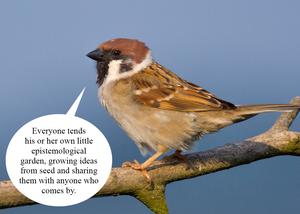
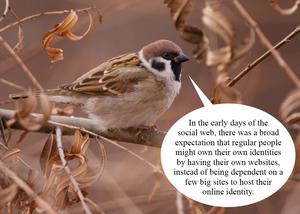
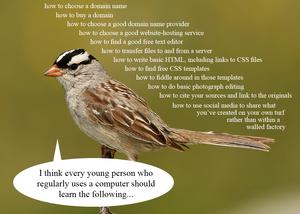
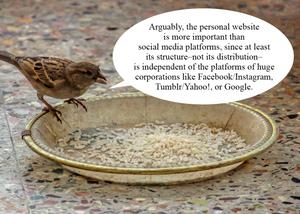
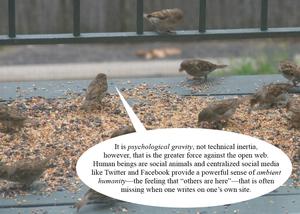
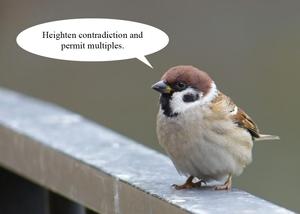
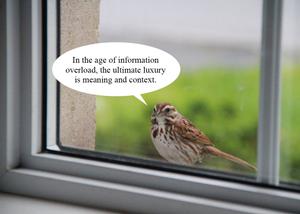
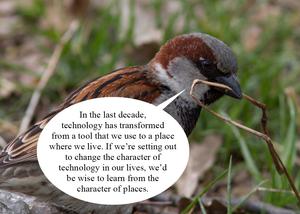
“in the age of information overload, THE ULTIMATE LUXURY IS MEANING AND CONTEXT.”
– Louis Rossetto
In today's highly commercialised web of multinational corporations, proprietary applications, read-only devices, search algorithms, Content Management Systems, WYSIWYG editors, and digital publishers it becomes an increasingly radical act to hand-code and self-publish experimental web art and writing projects.
I'm very concerned that our society is much more interested in information than wonder.
Two myths currently limit our collective imagination: the myth that advertising is the only possible business model for online companies, and the myth that it’s too late to change the way platforms operate. On both points, we need to be a little more creative.
The future is one where technology is reclaimed by everyone; it is open and welcoming and asking to be built by hand. I want us to grow towards that future with everything we share.
Anyone can set up a web site and point to all the other web pages. Everyone is a publisher. Everyone is a peer. That’s why it’s called a web. Individuals knit themselves together by linking to one another. Everyone tends his or her own little epistemological garden, growing ideas from seed and sharing them with anyone who comes by.
...
Making a shift to a more democratized internet won’t be easy. Once you start to rally your energies toward a more open future, you will be shocked by the forces arrayed against you; the intransigence of the people who want to buy and sell your information; the amorality of the hackers who play with millions of people for sport; the cold, endemic corruption of intellectual property and patent law; the infinite protections for copyright. It can get a person down.
We could still live in that decentralized world, if we wanted to. Despite the rise of the all-seeing database, the core of the internet remains profoundly open. I can host it from my...
I evoke the term 'handmade web' to refer to web pages coded by hand rather than by software; web pages made and maintained by individuals rather than by businesses or corporations; web pages which are provisional, temporary, or one-of-a-kind; web pages which challenge conventions of reading, writing, design, ownership, privacy, security, or identity.
In the early days of the social web, there was a broad expectation that regular people might own their own identities by having their own websites, instead of being dependent on a few big sites to host their online identity.
Heighten contradiction and permit multiples.